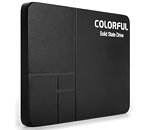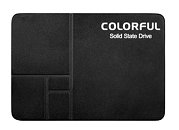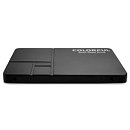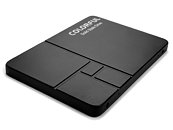- Joined
- Oct 9, 2007
- Messages
- 47,845 (7.39/day)
- Location
- Dublin, Ireland
| System Name | RBMK-1000 |
|---|---|
| Processor | AMD Ryzen 7 5700G |
| Motherboard | Gigabyte B550 AORUS Elite V2 |
| Cooling | DeepCool Gammax L240 V2 |
| Memory | 2x 16GB DDR4-3200 |
| Video Card(s) | Galax RTX 4070 Ti EX |
| Storage | Samsung 990 1TB |
| Display(s) | BenQ 1440p 60 Hz 27-inch |
| Case | Corsair Carbide 100R |
| Audio Device(s) | ASUS SupremeFX S1220A |
| Power Supply | Cooler Master MWE Gold 650W |
| Mouse | ASUS ROG Strix Impact |
| Keyboard | Gamdias Hermes E2 |
| Software | Windows 11 Pro |
Colorful Technology Company Limited, professional manufacturer of graphics cards, motherboards and high-performance storage solutions is thrilled to announce the latest addition to its rapidly expanding high-performance storage solution portfolio with its latest and highest capacity SSD offering to date. The new COLORFUL SL500 2TB SSD brings massive capacity at a competitive price point giving mainstream consumers a viable option to completely replacing mechanical hard disk storage with high-speed, solid-state drives.
The COLORFUL SL500 2TB SSD removes the need of mixing SSDs with HDDs to balance speed and performance, all the while making it much more accessible to mainstream consumers with its affordable price. Power users, gamers and multimedia professionals can now utilize the speed advantage of SSDs without relying on slower HDDs to compensate for growing file sizes. Now you can store all your games, work on large 4K videos all on a single SSD. The COLORFUL SL500 2TB SSD brings faster load times for apps and games that will benefit both professionals and gamers alike.




With the speed and capacity of the COLORFUL SL500 2TB SSD, it makes it easier for gamers and professionals to manage and maintain their data without mixing up multiple drives with numerous partitions. You can have all your application data, served quick from the SL500 2TB SSD. Games will load faster, levels will load rapidly so gamers can stay playing with nearly zero loading times. Applications load fast so you don't need to spend time waiting for your photo or video to load in your editor. The benefits of the SL500 2TB SSD also expands to notebook and HTPC owners looking for a high-speed, high-capacity yet have low power consumption for longer battery life and less heat.
View at TechPowerUp Main Site
The COLORFUL SL500 2TB SSD removes the need of mixing SSDs with HDDs to balance speed and performance, all the while making it much more accessible to mainstream consumers with its affordable price. Power users, gamers and multimedia professionals can now utilize the speed advantage of SSDs without relying on slower HDDs to compensate for growing file sizes. Now you can store all your games, work on large 4K videos all on a single SSD. The COLORFUL SL500 2TB SSD brings faster load times for apps and games that will benefit both professionals and gamers alike.




With the speed and capacity of the COLORFUL SL500 2TB SSD, it makes it easier for gamers and professionals to manage and maintain their data without mixing up multiple drives with numerous partitions. You can have all your application data, served quick from the SL500 2TB SSD. Games will load faster, levels will load rapidly so gamers can stay playing with nearly zero loading times. Applications load fast so you don't need to spend time waiting for your photo or video to load in your editor. The benefits of the SL500 2TB SSD also expands to notebook and HTPC owners looking for a high-speed, high-capacity yet have low power consumption for longer battery life and less heat.
View at TechPowerUp Main Site



